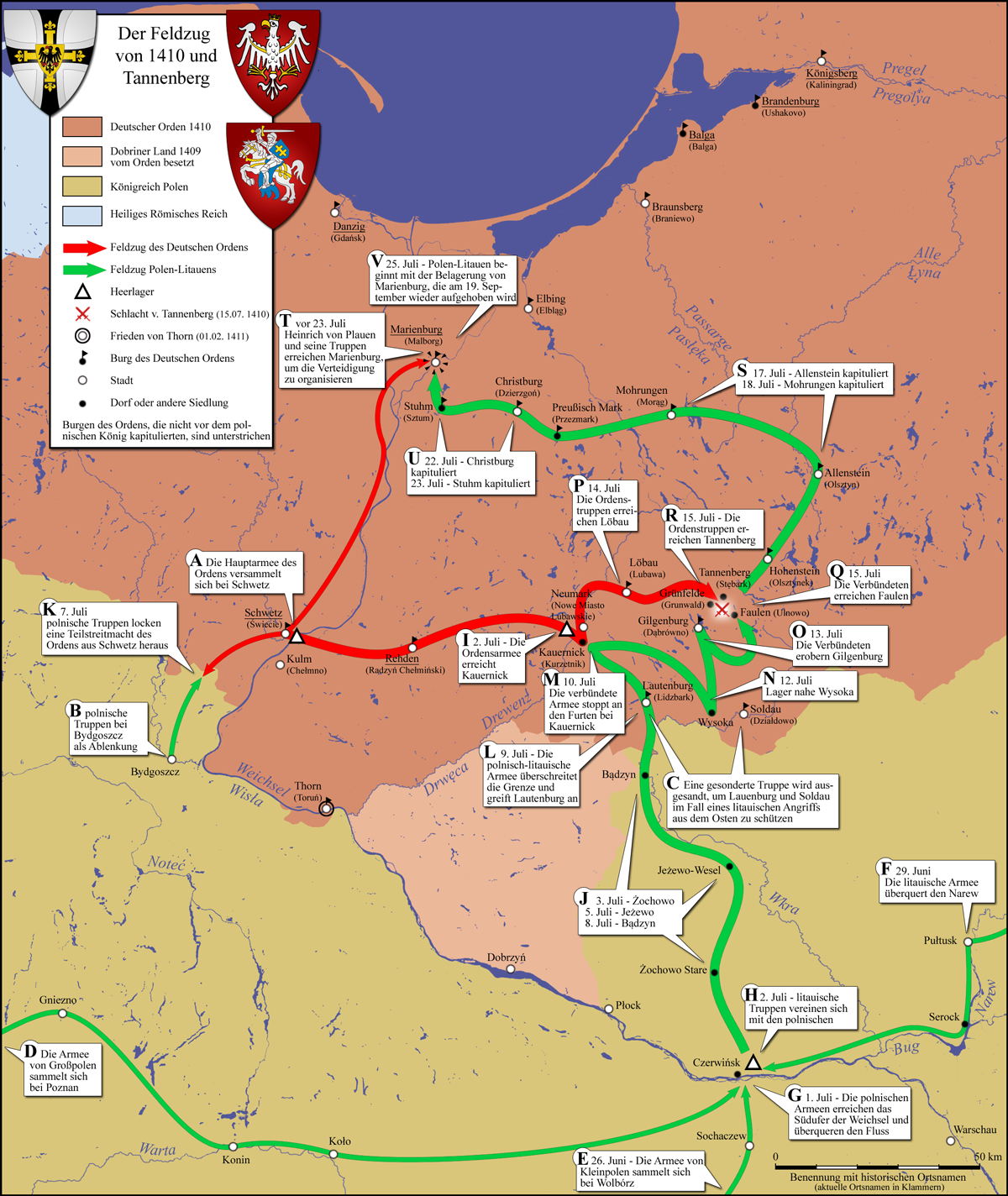
#Schlacht bei tannenberg series
In order to further their war efforts against the (pagan) Lithuanian state, the Teutonic Knights instituted a series of crusades, enlisting support from other European countries. The Prussians fought against takeover of their territory. They built many towns, including Culm Chełmno. They were just a handful and were therefore ineffective, so by papal order they were combined with the Teutonic Order. The Order of Dobrin was established by Konrad of Masovia previously and had received land around Plock. They later received the territory of further north Baltic coastal regions of what are now Latvia, Lithuania and Estonia, and showed every sign of further expansion. The Teutonic Order received the territory of Prussia via golden bulls from the Emperor and papal edict, which gave them effective carte blanche as owners of a new 'Christianized' state of Prussia, instead of the 'pagan' native land of Terra Prussiae. The Teutonic Order was called in to stabilize the territory between the Prussians and the Duchy of Masovia. Preceding that were several years of attacks and conquest attempts by Konrad on the Prussians, which were unsuccessful. In the thirteenth century, the Teutonic Knights, subject directly to the Pope, had been requested by Konrad of Masovia to come to the lands surrounding Culm (Chełmno) to assist in the Crusade against the ( pagan) Prussians. Bitwa pod Grunwaldem (Bitwa pod Grundwaldem, Battle of Grunwald) by Poles,.Žalgirio mūšis (Battle of Žalgiris) by Lithuanians,.Schlacht bei Tannenberg (Battle of Tannenberg) by Germans,.The names Žalgiris (from the Lithuanian žalia giria) and Grunwald (from the German grüner Wald) both translate as "Green Forest " it was also called Zielone Pole ("Green Field") in Old Polish, and, in German, Grunenfelde or Grunefeld ("Green field") in the oldest texts. The nearest city of any size was Gilgenburg (since 1945: Dąbrówno). The battle was fought in the plains between the villages of Grunwald (Lithuanian: Žalgiris), Stębark (German: Tannenberg), and Łodwigowo (German: Ludwigsdorf) in Prussia, which at that time was territory governed by the Teutonic Order, but which is now in Poland. In a world that has seen so much religiously sanctioned violence, the idea of military orders of priests no longer seems congruous with the ideal of religion as a force for peace, harmony and reconciliation in the world, not as the cause of conflict. Napoleon Bonaparte finally dissolved the military order in 1809, although it continued to exist as a charitable organization.

In addition, they had to pay reparations to the victors. When the Polish-Lithuanian War ended, the knights retained some scattered territories but were substantially weakened. Desire for worldly wealth took priority over religious zeal. The Christianizing of Lithuania had already removed much of their reason for existence. However, they exceeded this mandate when they invaded the Christian territories of Poland and Lithuania in 1398. Rightly or wrongly, the original mandate of the Teutonic Knights has been to "pacify" and "Christianize" those areas that were under pagan rule. What is known is that the battle took place near several smaller villages, and different names in various languages are attributed to it. The few eyewitness accounts are contradictory.


 0 kommentar(er)
0 kommentar(er)
